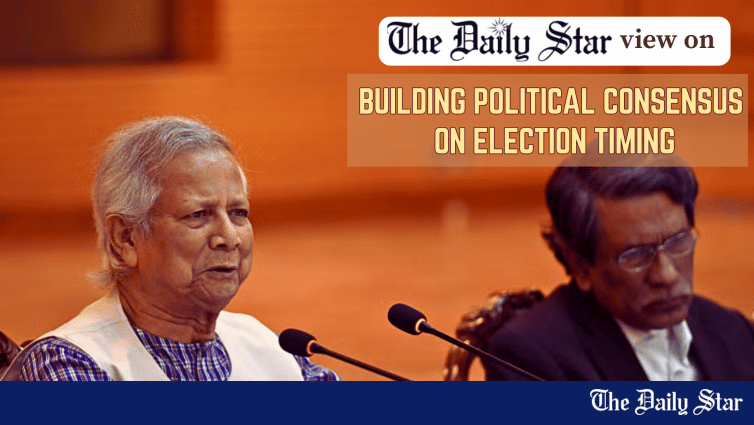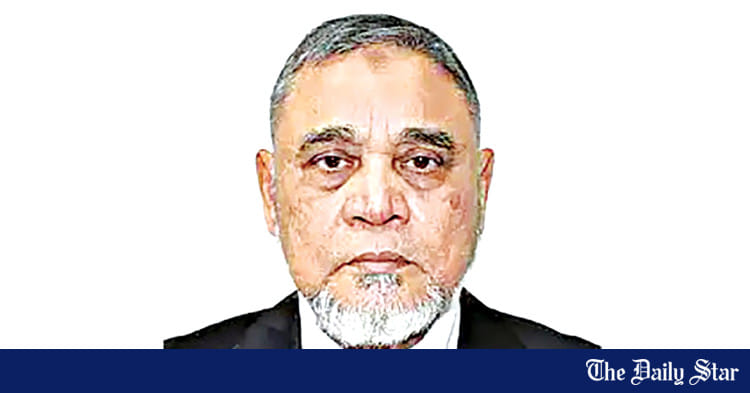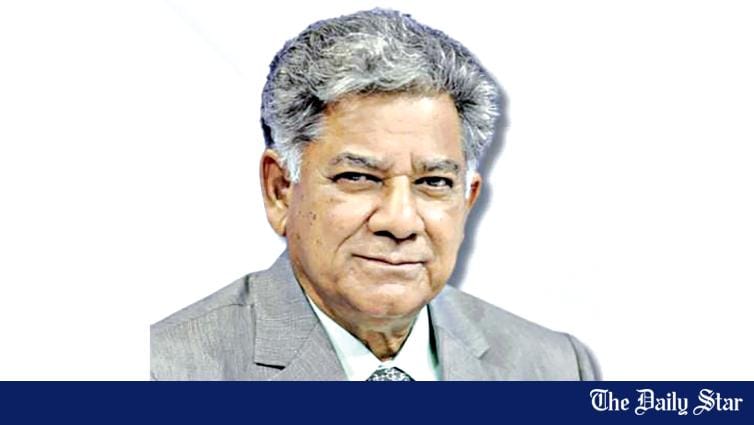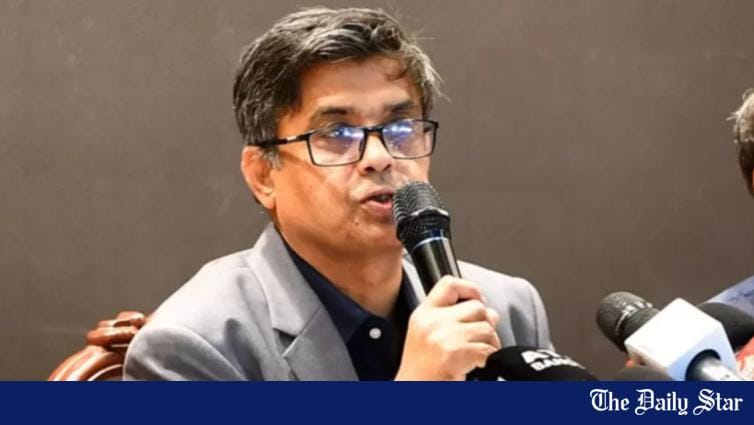Saif
Senior Operative
- 13,242
- 7,269
- Origin

- Axis Group

- Copy to clipboard
- Thread starter
- #81

BNP, Jamaat at odds over election
Two major political parties — the Bangladesh Nationalist Party and its long-time ally the Bangladesh Jamaat-e-Islami — have taken conflicting stands on elections.
 www.newagebd.net
www.newagebd.net
BNP, Jamaat at odds over election
Staff Correspondent 13 February, 2025, 23:54

People to decide on AL ban, says Fakhrul
Two major political parties — the Bangladesh Nationalist Party and its long-time ally the Bangladesh Jamaat-e-Islami — have taken conflicting stands on elections.
Jamaat demands local body elections and state reforms before the next general election while the BNP wants national election first after reforms that are essential for elections.
The BNP on Thursday rejected Jammat’s proposal for holding local government elections before the national elections, raising concerns that it could destabilise the country.
Besides, Jamaat’s call for proportional representation in the national election was also swiftly dismissed by the BNP.
On Thursday, a delegation led by Jamaat secretary general Mia Golam Parwar met with election commissioners at the Election Commission office in Dhaka.
After the meeting, Parwar, citing people’s desire, told journalists that Jamaat supported holding the local government elections before the national polls.
BNP secretary general Mirza Fakhrul Islam Alamgir, addressing a press briefing at the party chairperson’s office in the captal’s Gulshan area on Thursday, rejected the idea of holding local elections before the national polls and described it as an attempt to push the country into a more fragile political situation.
The BNP leader addressed the press briefing after a meeting with the acting British High Commissioner in Dhaka, James Goldman.
He said that the national election should take place without any delay to ensure political stability in Bangladesh.
Fakhrul argued that delaying the national election for local government elections would only prolong the existing political unrest, and would undermine the country’s stability.
During Jamaat’s meeting with the EC, the party also advocated for the adoption of proportional representation in the upcoming elections.
This proposal was firmly rejected by the BNP, with Fakhrul stating that the BNP would never support such a system.
Parwar, while talking to journalists, emphasised the importance of electoral reforms, saying that, without proper changes, future elections could repeat the mistakes of the past.
He said that Jamaat was not demanding immediate elections but was willing to give a ‘reasonable’ time to complete necessary reforms.
Regarding the issue of banning the Awami League, Fakhrul at Thursday’s press conference said that the BNP would not decide whether the AL should be banned or barred from participating in the upcoming national election.
He said that the people of Bangladesh would decide on it.
The BNP leader also thanked the United Nations for the UN fact-finding report, which accused ousted prime minister Sheikh Hasina of involvement in mass killings during the July-August uprising.
He claimed that the report confirmed that the killings during the July-August mass uprising were carried out on orders from fascist Hasina.
Staff Correspondent 13 February, 2025, 23:54
People to decide on AL ban, says Fakhrul
Two major political parties — the Bangladesh Nationalist Party and its long-time ally the Bangladesh Jamaat-e-Islami — have taken conflicting stands on elections.
Jamaat demands local body elections and state reforms before the next general election while the BNP wants national election first after reforms that are essential for elections.
The BNP on Thursday rejected Jammat’s proposal for holding local government elections before the national elections, raising concerns that it could destabilise the country.
Besides, Jamaat’s call for proportional representation in the national election was also swiftly dismissed by the BNP.
On Thursday, a delegation led by Jamaat secretary general Mia Golam Parwar met with election commissioners at the Election Commission office in Dhaka.
After the meeting, Parwar, citing people’s desire, told journalists that Jamaat supported holding the local government elections before the national polls.
BNP secretary general Mirza Fakhrul Islam Alamgir, addressing a press briefing at the party chairperson’s office in the captal’s Gulshan area on Thursday, rejected the idea of holding local elections before the national polls and described it as an attempt to push the country into a more fragile political situation.
The BNP leader addressed the press briefing after a meeting with the acting British High Commissioner in Dhaka, James Goldman.
He said that the national election should take place without any delay to ensure political stability in Bangladesh.
Fakhrul argued that delaying the national election for local government elections would only prolong the existing political unrest, and would undermine the country’s stability.
During Jamaat’s meeting with the EC, the party also advocated for the adoption of proportional representation in the upcoming elections.
This proposal was firmly rejected by the BNP, with Fakhrul stating that the BNP would never support such a system.
Parwar, while talking to journalists, emphasised the importance of electoral reforms, saying that, without proper changes, future elections could repeat the mistakes of the past.
He said that Jamaat was not demanding immediate elections but was willing to give a ‘reasonable’ time to complete necessary reforms.
Regarding the issue of banning the Awami League, Fakhrul at Thursday’s press conference said that the BNP would not decide whether the AL should be banned or barred from participating in the upcoming national election.
He said that the people of Bangladesh would decide on it.
The BNP leader also thanked the United Nations for the UN fact-finding report, which accused ousted prime minister Sheikh Hasina of involvement in mass killings during the July-August uprising.
He claimed that the report confirmed that the killings during the July-August mass uprising were carried out on orders from fascist Hasina.








